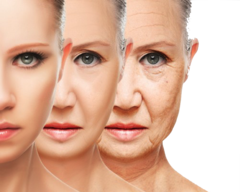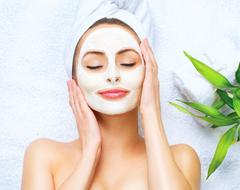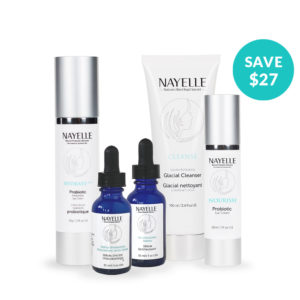
Pollution isn’t just threatening the planet. Research shows that it can also be bad for your complexion.
We all know that one of the enemies of modern civilization is “Pollution”. In fact it’s a silent killer who is responsible for causing various diseases and many of them are also fatal. Very few of us are aware about its exact impact on our specific organs. Skin is the most sensitive part of human body.
According to the researchers everything we apply on the skin pass through the layer “stratum corneum”. Due to air pollution in the city, ozone quickly strips vitamin E, which indulges a healthy skin, from that topmost layer of the skin.
Pollution leads different type of skin disorders. Air pollution can be a main cause of pre aging of skin. Dust mist may generate eczema if it comes in contact with skin. Chemicals used in various products like paints, cleaning stuffs, lacquers, adhesives, building materials etc. can seriously pollute the air. Those agents are entered into our body through the breathing and affect our lungs, eyes, nose, and can create skin allergies. Ozone is the basic element in smog which leads skin cancer. Besides ozone the other reason of skin cancer is harmful UV radiation of sun.
Air pollution’s effects on skin are attracting more attention from dermatologists and patients and have raised many concerns. Unlike sunburns, damage resulting from air pollution may not cause as immediate of a response, increasing the danger because we are unaware of it happening. Therefore, it is important to be aware of what pollution particles are and how they can affect the skin. But it is hard to avoid air pollution.
Microscopic specks of smoke, soot, acid and other pollutants are released into the atmosphere from sources like fires, construction sites, cars and power plants.
According to the Environmental Protection Agency, about 83 million tons of pollution was emitted into the air in the United States in 2012.
Man-made pollution not only damages skin directly but also contributes to the erosion of the ozone layer, which helps shield us from the sun’s harmful rays.
Pollution is created by emissions of toxic gases combined with UV rays from sunlight it creates a highly reactive molecule that causes damage to proteins, collagen and lipids in the skin. Remember, the main function of the skin is to act as a barrier or a shield.
EFFECTS
Air pollution has a wide range of sources, the most common include cigarette smoke, dust, smog, and car exhaust. These sources contain tiny particles that can actually penetrate the skin’s barrier and cause problems, including:
– Decreased moisture and elasticity
– Acne
– Dull and dry skin
– Eczema
– Rashes
– Wrinkles

Air pollution particles can speed up the normal aging process. While losing some moisture and elasticity is a natural part of getting older, pollution can starve the skin of oxygen and dry the skin’s natural oils. Some forms of pollution can even create free radicals, which can alter the very DNA of the skin cells, leading to cancer. This is what causes additional damage.
When that pollution comes into contact with your skin, it doesn’t just sit on the surface, griming it up like it would a windshield. These particles’ tiny size, sometimes as many as 20 times smaller than pores, allows them to infiltrate deeper layers of the epidermis, causing not only inflammation and dehydration but also a cellular-level reaction that leads to lost elasticity and firmness.
“Pollution breaks down collagen and the lipid layer in the skin, which impairs skin barrier functions,” says Zoe Draelos, M.D., consulting professor of dermatology at Duke University in Durham, North Carolina, and author of the Journal of Cosmetic Dermatologyarticle “Aging in a Polluted World.”
“Pollution can cause uneven skin tone, accelerated aging and even skin cancer,” says Doris Day, M.D., clinical associate professor of dermatology at New York University Langone Medical Center.
“Simple changes to your beauty routine, such as proper cleansing and using antioxidants every day, can have a big, positive impact on skin,” says Dr. Day.
When pollution gets into your skin, it creates free radicals, highly unstable molecules that have unpaired electrons. These molecules act like Ping-Pong balls, bouncing around in your skin on their quest to steal an electron from a healthy cell, thereby injuring it.
“They literally poke holes in the collagen, which is what gives skin its firmness,” Dr. Draelos
All this destruction also shows up as hyperpigmentation and fine lines. Free radicals can increase inflammation, which makes acne and rosacea worse.
“The most severe thing they can cause is DNA damage and cell mutation, which can lead to cancer,” Dr. Draelos says.
When breathed in, pollutants generate circulating free radicals and increase our inflammatory state by activating our immune response which can accelerate signs of ageing.
The Skin Cancer Foundation estimates that 90 per cent of premature ageing is caused by environmental damage, including ultraviolet (UV) rays. “The negative impact of environmental factors other than UV light has long been neglected,” says Dr Stefanie Williams, independent dermatologist at European Dermatology in London and spokesperson for Avon.
“We have a special lab set up, and we basically tested the particles on artificial skin. We found that they generate free radicals, DNA damage, and inflammation, just like the sun does. We just did a study in Germany that looked at people who lived in high-pollution areas, and we were able to show that there was a significant increase in hyperpigmentation and aging of the skin there. We have similar data in other cities of the world.” says Dr. Tom Mammone, the executive director of skin physiology and pharmacology of Clinique’s R&D team.
Teenagers have a high production of sebum, or oil, on their faces. And while scientists are still figuring out what exactly sebum is supposed to do, we have discovered that it behaves a lot like a lipid, In other words, it’s kind of like butter. That oil essentially behaves as a breeding ground for the toxins in the air, which leads to things like lines, wrinkles, and hyperpigmentation. To be fair, the verdict is still out if this causes blackheads and acne, like other air pollutants do.
“The sun isn’t the only villain, now that we know how damaging pollution really is,” says David Bank, M.D., assistant clinical professor of dermatology at Columbia-Presbyterian Hospital in New York City.
Although widely reported that the Olay study stated that particulate matter 2.5 (PM 2.5), the term for large, sugar-granule-sized toxic polluted particles can be absorbed into the skin, this is not true.
“PM 2.5 particles are too large to penetrate,” says Dr Frauke Neuser, Olay principal scientist. “But chemicals that are attached to them, such as from fuel, oil, diesel and pesticides, will penetrate and kick off a reaction with free radical production and oxidative stress which of course ages the skin.” On a day of high pollution, skin conditions will flare up too. “It’s a vicious circle,” she continues. “Every time you go out, the chemicals can penetrate more easily and the barrier is weakened.”
“Healthy skin needs clear air.” says Martine Burford, Founder and MD of award-winning British brand Ruby Red, “Polluted air basically reduces the oxygen in skin cells and affects collagen production.” We often hear about healthy skin from the inside out but pollutants can damage your skin from the outside. Exhaust fumes, dust and other dirty particles in the air can all start to cause damage.
Throughout the day, pollution in the air sticks to your skin and is absorbed by the skin’s natural barrier. Over time, this can irritate and weaken the skin’s natural barrier, reducing oxygen and increasing the level of free radicals that are produced by the body.
WAYS TO AVOID EFFECTS OF POLLUTION TO OUR SKIN

– CLEANSE YOUR SKIN
– NEUTRALIZE
– PROTECT YOUR SKIN
– EAT HEALTHY FOOD
– HYDRATE
– TAKE HEALTH PRECAUTIONS
CLEANSE YOUR SKIN
- WASH YOUR FACE
Washing your face thoroughly every day is a critical piece of reducing the burden that pollution puts on your skin,” says Erin Gilbert, M.D., assistant professor of dermatology at State University of New York Downstate Medical Center in Brooklyn.
- In the morning, wash in order to prep skin for radiance-boosting products. Use a mild cleanser.
- “Only people with really oily skin need anything stronger,” says Elizabeth Tanzi, M.D., associate professor of dermatology at George Washington University Medical Center in Washington, D.C.
EXFOLIATE/SCRUB
At night, you need to go deeper to remove the film of potentially harmful pollutants, not to mention makeup and everyday dirt and sweat. The goal is to get everything off without too much scrubbing, drying or irritation, which can exacerbate skin conditions like acne.
- At-home treatments, such as masks and peels, can add a more rigorous level of skin cleaning.
- Bank recommends using the same face wash from the a.m., but with an electronic brush. The brush is proven to more effectively remove impurities, especially sticky particles like soot than washing by hand.
- “Think of a pollutant as a smoldering cigarette butt that’s stuck in your skin, continuing to emit toxic chemicals,” Dr. Bank says.
- “Simple washing may not be enough to remove it, but exfoliating can get those cells out of there.” If you don’t use a brush or your skin is too sensitive, add a gentle scrub to your nightly routine. “Limit use to every other night if either irritates,” says Dr. Tanzi.
- APPLY TONER
- As a final step, soak a cotton pad with toner then wipe it across your skin.
- “It’s especially worth doing when you’re in a big city,” Dr. Day says. “It lifts off any debris that may be left behind.”
NEUTRALIZE
- ANTIOXIDANTS
These nutrients can donate an electron where needed, effectively neutralizing the free radical and diminishing its havoc-wreaking effects on your skin.
- These nutrients can donate an electron where needed, effectively neutralizing the free radical and diminishing its havoc-wreaking effects on your skin.
- ”Research shows that antioxidants provide one of the best treatments for preventing or reducing free-radical damage,” says David McDaniel, M.D., adjunct assistant professor at Old Dominion University in Norfolk, Virginia. To help protect skin, layer on a serum with antioxidants after cleansing in the morning, and do the same at night to bolster its repair process. Also, eat antioxidant-rich foods such as blueberries, leafy greens and beans. “They play a powerful role in our body’s ability to repair itself, particularly the skin,” Dr. Gilbert says.
- Skin products containing elastin and collagen is also beneficial, as these vitamins help with cellular regeneration
- Using a daily moisturizer helps to replenish those oils stripped from the skin.
- Use organic cosmetics and avoid products with harsh ingredients as it will just damage our skin.
Nayelle’s cosmetic line is the top of the line cosmetic company that provides different options for organic cosmetics or skin care formulas. Save you skin and save the earth.
PROTECT YOUR SKIN
Ultraviolet Rays emitted by the sun cause many types of skin damage:
- Skin cancer
- Wrinkles
- Freckles
- Age spots
- Discolorations
- Benign growths
Using skin care products that offer ultraviolet protection is one of the best ways to help keep your skin looking fresh and youthful.
- SUNBLOCK
Man-made pollution not only damages skin directly but also contributes to erosion of the ozone layer, which helps shield us from the sun’s harmful rays. So you’re getting more sun exposure than ever before, even on cold, cloudy days. “We know that UV rays are stronger,” Dr. Day says. “That doesn’t just mean a chance of more sun burns. These UV rays become accelerants: If you have hyperpigmentation or inflammation, they’ll make it worse.” Apply an SPF 30 daily to protect yourself; the latest formulas contain antioxidants, boosting their pollution-fighting powers. “Utilize sunscreen, antioxidants and proper cleansing, and you won’t end up with skin that’s older than its years or a higher risk for skin cancer,” Dr. Day says.
- Stay indoors when the sun is as it’s most intense, usually between 10 a.m. and 3 p.m.
EAT HEALTHY
- Drink plenty of water, green vegetables, salads and fruits to detoxify the body.
- Having a rich diet in fruits and vegetables, such as tomatoes, leafy greens, berries, etc., can give your body the vitamins and nutrients to combat skin damage.
HYDRATE
- Drinking plenty of water every day can combat the drying effects of pollution, leaving the skin fresher.
- Use the right moisturizing cream or lotion for your skin type and apply it right after drying off from your bath or shower. Avoid products that contain sodium lauryl sulfate, as this ingredient removes natural oils needed by your skin.
- Take warm (not hot) showers or baths, and limit them to between 5 and 10 minutes. It seems counterintuitive, but exposure to water actually dries out your skin. If dry skin persists, consider cutting back on the number of baths you take.
TAKE HEALTH PRECAUTIONS
Cold sores are caused by a viral infection of the skin bordering the lips, while bacteria can contribute to acne and other skin conditions. Practicing skin protection means paying close attention to what touches your skin, to lower your chances of exposure to germs:
- Don’t share any personal items, such as lip balms or toothbrushes.
- Don’t share drinks with other people.
- Avoid touching your face with your fingers or with objects like telephone receivers that have been used by others.

